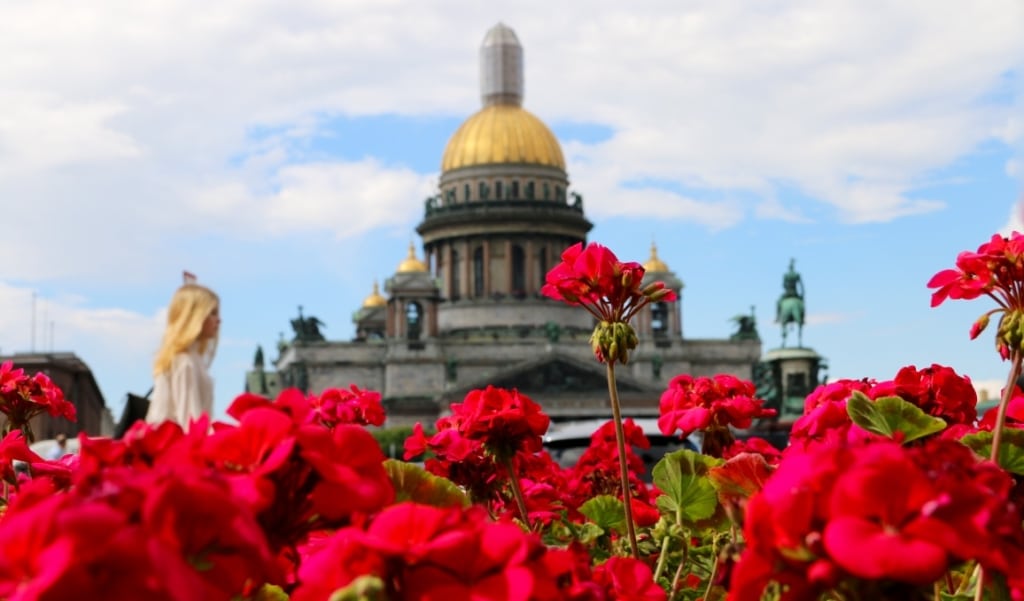
an update on safety concerns and educational opportunities
– February, 2016 –

This marks the third year that I’ve done a “state of study abroad” on Russia. I find it amazing that every time I’ve sat down to do one of these, it seems like I have an entirely different landscape to describe.
Russian Economics
Particularly on the economic side, it feels like Russia is moving through tectonic shifts. Massive changes have come one upon the other that, as an American, I have found particularly fascinating to watch. With the currency rapidly devaluing compared to the dollar and euro, a noticeable number of business and brands have disappeared rapidly. In many cases, other brands and businesses have replaced them – sometimes domestically produced and sometimes imported from a different country with a weaker currency. Sanctions enacted by Russia against other countries have caused sharp shifts in food prices. Russia’s recent addition of Turkey to its sanctions list caused a spike in the cost of tomatoes and cucumbers, for instance, as Turkish-produced produce disappeared from shelves. Sanctions against Russian financial markets is helping drive a consolidation of Russia’s banks, with two or three small to mid-sized banks, on average, disappearing from the market every week.
Viewed from the outside, particularly from a historically stable country like the US, it might appear that things are changing so fast and seemingly so chaotically, that the situation inside Russia must surely be headed toward a general collapse or crash. However, it’s also fascinating how well the principle of relativity applies to the situation. Inside Russia, the initial jolt, like the initial jolt of a train beginning to move, was noticeable and gave people reason to reassess their balance. With the train now moving, the people inside are moving with the train, going about their business and otherwise living their lives even while the train bumps and jostles.
Life for Russians
From inside Russia, indeed, there seems to be no reason to panic. While prices have risen and inflation has entered double digits, there are no food shortages. Some brands of cheese and beer, for instance, have disappeared but others, many locally produced, have appeared. The rapid culling of banks has actually been surprisingly orderly, preventing a general run on banks and leaving depositors, in the vast majority of cases, with their funds intact. While some protests have been sparked among specific groups, such as foreign currency mortgage holders (who number some 33,000 across the country) and long-distance truckers (an even smaller demographic), faith in the Russian government remains high and polls show that mass protests are highly unlikely.
While changes have been rapid, most Russians can remember the vastly more radical and rapid changes that overtook their country throughout the 1990s. The current changes seem minor in comparison – perhaps something to modify their spending habits for, but nothing to demand a change in their daily focus of work, family, and friends. Thus, the speed and changes seem manageable and life keeps chugging along.
Life for Foreigners
Life for foreigners in Russia has probably changed more than the lives of Russians themselves. Although the value of the ruble has plunged to about half its previous value, this does not mean that prices in Russia have doubled. In fact, prices have only risen by about 10-20%. For anyone inside Russia on a dollar budget this means that Moscow, for example, has gone from being one of the world’s most expensive cities, to being incredibly affordable and sometimes even surprisingly cheap. Students who once researched carefully places to make their purchases in an attempt to manage their limited budget now find that the same budget is plenty to live on quite comfortably without worry.
For many foreigners working in Russia, however, the situation can be quite different. Foreigners rarely cut ties completely to life outside Russia. Many have family obligations abroad, debts (particularly student debts) to pay abroad – or even simply plans to retire someplace other than Russia. In each of these cases, earning a salary in rubles has rapidly become untenable. We are thus seeing another (one happens with every financial crisis in Russia) exodus of foreigners.
It should be mentioned that this exodus is being driven primarily by economic concerns. While many westerners are opposed to Russia’s current political environment, political concerns are secondary in having making the decision to leave. Westerners are not moving because of increased xenophobia against them or fears for personal safety. Russians are still, overall, a curious and intelligent people. Many study English, still more enjoy American music, movies, and food. Most, it seems, are curious about Americans and are willing to have a conversation about world issues – even where both sides have to agree to disagree.
What It Means for Students
SRAS still recommends that students study in Russia. Especially for those hoping to go into government, diplomacy, or into academia in fields like history, literature, or language – Russia should be on your resume; without having been there for at least a few months, it is very difficult to claim to know what Russia is really like. Changes come rapidly, differences from America are extreme, and, although we are all human, we are a very different people, with very different histories, and very different worldviews and cultures. For this reason, study abroad to Russia for students of all majors can be eye-opening, and instrumental to building a more creative, more confident, more culturally sensitive self.
Students can also learn from the experience of expats now leaving. Many of those expats have been here very long-term, in some cases two decades or even more. Those long-term expats, returning to their own countries, often find themselves without the sort of social network that one often turns to when seeking employment. Many also find their Russia-heavy resume means that they are seen exclusively as Russia experts – and not the sort of well-rounded analysts that are sought for higher-level positions.
SRAS still thinks that working abroad for a year or two can also be beneficial to students, particularly very early in their careers. All the reasons for study abroad are magnified when working abroad. One is generally completely independent and must manage one’s own affairs, without the benefit of a school, an advisor, or a study abroad organization to help support you. One is also living and working among Russians, experiencing much more closely the daily life they experience and coming to understand today’s Russia just that much more intimately. Very often, the jobs open to foreign English speakers have surprisingly little competition and job growth opportunities within companies that hire foreign English speakers are often quite good, meaning that one can develop an impressive resume within a small amount of time.
That all said, students interested in working abroad should always keep one foot at home, so to speak – maintaining contacts, researching markets, and generally planning long-term to make sure that their time abroad is focused on helping them to achieve their eventual goals.
In short, study abroad to Russia – and life in Russia in general – is still safe, valuable to achieving one’s goals, and, for those with dollars to spend, more affordable than ever.


